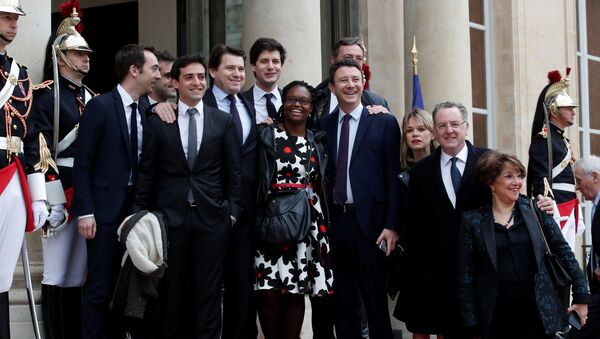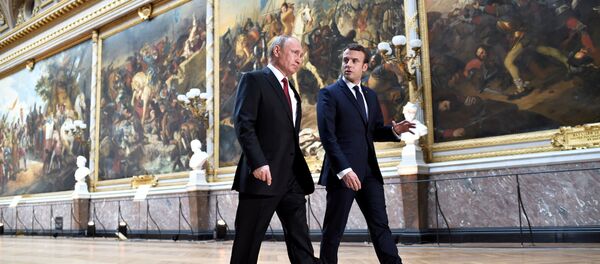MOSCOW (Sputnik) — French President Emmanuel Macron's newly elected parliamentary majority is likely to follow the government in regarding Russia as a threat to the West, thus undermining Franco-Russian interparliamentary cooperation, Nicolas Dhuicq, a member of The Republicans party, told Sputnik on Tuesday.
"Considering foreign affairs and defense questions, a new parliament will probably consider that these questions should be in the hands of the government, which is totally wrong and dangerous for the democracy. New parliamentarians will act within the neoconservative ideology that sees Russia as a threat to the Western world and its unrivaled power. This is not very good news for Franco-Russian [interparliamentary] relations," Dhuicq, who is also the mayor of the French town of Brienne-le-Chateau close to Paris, said.
The French parliament will look completely different after Sunday’s second round of parliamentary elections. La Republique En Marche party, founded by Macron, won a decisive majority of 308 seats out of 577. Another 42 mandates were taken by their allies from the Democratic Movement (MoDem) party, while the center-right The Republicans and their allies gathered 135 seats. In the 2012-2017 parliament the Socialists held 280 seats and The Republicans had 194 seats.
Dhuicq, who was running as a candidate with The Republicans in the country's legislative election, believes that Macron’s parliamentary majority, which is mostly made up of political newcomers, may undermine the institutional balance and leave the legislative body with no opposition to government policies.
"The newly elected members of the parliament have no experience or knowledge of the lawmaker’s tasks, meanwhile, the main task as a member of parliament is to control the action of the government," he pointed out.
Dhuicq, who is a board member of the Franco-Russian Dialogue Association and who twice visited Crimea with delegations of French members of the parliament, told Sputnik he believed it was his duty "to continue working for the Franco-Russian relations in terms of business ties and to promote the political dialogue between two countries."
Relations between Moscow and Paris deteriorated during the tenure of former French President Francois Hollande, as France along with other western countries accused Russia of interference in Ukrainian affairs and imposed anti-Moscow sanctions. Interparliamentary cooperation, however, was still carried out on a regular basis. A delegation led by French Foreign Affairs Committee’s Thierry Mariani visited Crimea twice over the last two years.


